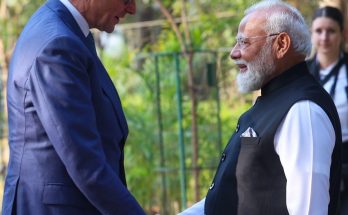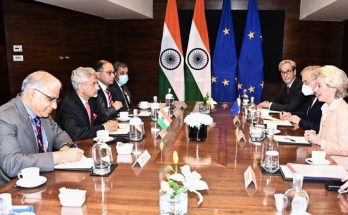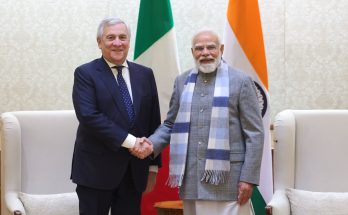India should not allow the Ukraine crisis to distract from the core objectives of the G20 and leverage its emerging position as a bridge builder to forge unique solutions to global crises. Going by its civilisational ethos and growing global stature, India is poised to leave its stamp on the evolution of the G20, says Pankaj Saran.

By PANKAJ SARAN
The G20 is a self-selected grouping of the systemically most important economies in the world. While its creation predates the 2008 financial crisis, its upgradation to the level of leaders took place in the aftermath of that crisis. It was for the first time that domestic and international economic and financial issues found place on the agenda of world leaders, going beyond the traditional G7 grouping. Such escalation of what were considered to be country-specific or domestic issues best handled by Finance Ministries and Central Banks was extraordinary. In one swoop, the global economic agenda became a political agenda, requiring state intervention and driven by hard interests and calculations. Since the creation of the G20 group at the leaders’ level was the result of a crisis, the mood in its initial years was one of rallying around each other, doing the requisite firefighting and when the markets had settled, focussing on systemic issues and long-term solutions.
For India some similarities to the events leading up to the 2008 crisis and emergence of the G20 in its current form and the global situation as it exists today are worth noting. First, the crisis of 2008 was created in the West. India and the “Global South” had no role to play in the origin of the crisis, just as they had no role to play in the Ukraine conflict. Yet, in both instances, this set of countries became collateral damage. Second, then, as now, India was seen as part of the solution as evidenced by its immediate membership of the G20,during the tenure of Prime Minister Manmohan Singh.
Insulating G20 from Ukraine
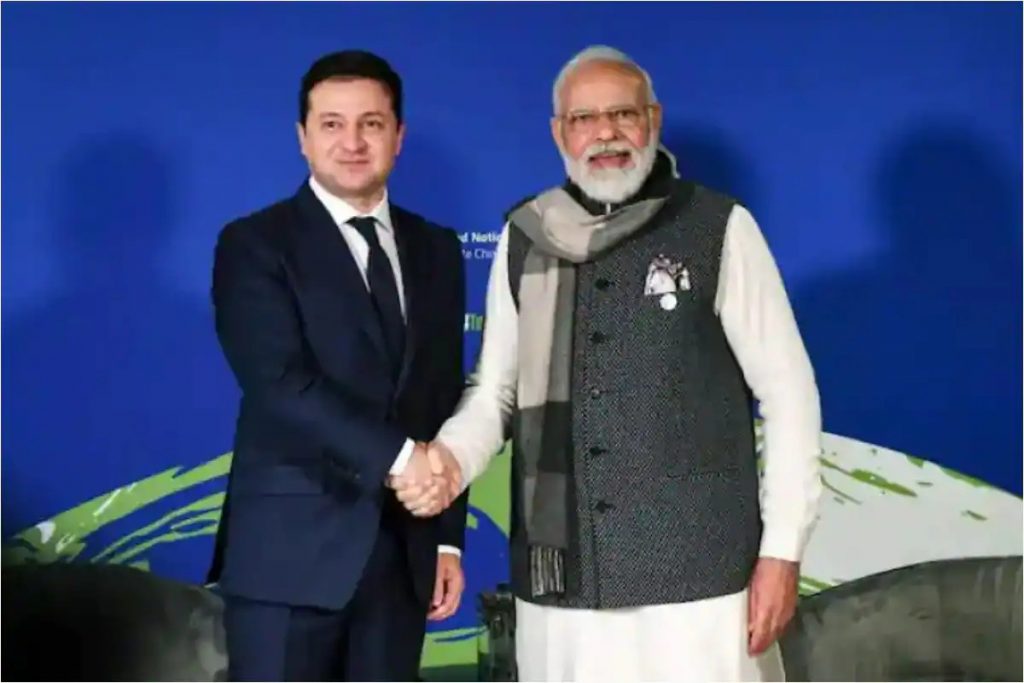
The world has changed significantly since It would have been unthinkable to those of the 2008 generation that the G20 would one day be looked upon as a forum for also addressing issues of war,security, and geopolitical conflicts.India and the “global South” have,however, made their preference known that they do not want the G20 agenda to be derailed by the ongoing tensions between Russia and the West. This was the primary challenge that Indonesia faced throughout its presidency and at the Summit itself. India should not allow the war to distract world attention from the core objectives and purposes of the G20. It is true there are short term dangers and dislocations, which call for a response, but India’s stakes are long term. Its needs are just beginning to make their presence felt on every facet of the global agenda along with its capabilities, potential and role as a solution provider to global challenges.
India has, rightly, taken the decision at the level of Prime Minister Modi to be the voice of reason and harmony in a highly fractious world and to keep the focus on issues which affect the economic well-being and future of humankind, such as global warming. The problem is not just the global economic dislocation caused by the Ukraine conflict, which is obviously bad enough by itself, but to inject sustainability, predictability, equity, and transparency in the international economic order. The presidency of the G20 gives India precisely the opportunity it needed to deal with these issues. As India’s economy grows and the country integrates with the world, its stake in the health of this order will also grow.The call of “One Earth, One Family, One Future” by Prime Minister Modi could not have been timelier. It is a message that resonates in all corners of the world.
Bridge-Builder
India’s relations with Russia are well known to all sides, just as our relations with the West are known to Russia and China. All moves and initiatives by India to wind down the conflict would be welcome. Having said this, India is acutely conscious of the power dynamics at play between the parties to the conflict and the room it has for manoeuvre. While it will play a helpful role, it is unlikely to allow its political capital to be consumed in mediation or dispute settlement. What India can be expected to do (and is the more desired path) is to stretch itself fully to shape a world order and commensurate global institutions that catalyse growth and create an environment that helps its own transformation.
Steering the G20 in directions that are supportive of India’s primary task of transforming the lives of 1.4 billion people will be its top priority. This will be nothing less than a global good by itself. Fifteen years after the first G20 summit in 2008, all eyes are on India as the next driver of global growth. This is a unique position to be in, especially when traditional growth centres like China, US and Europe are in slowdown, or worse. In addition, India will play the role of bridging the gap between the rich and the “global South,” without being polemical.Developing countries want to make their voice heard and concerns addressed. In this regard, we can expect India to lead the campaign for meaningful reform of international institutions, including the India has the good fortune of inheriting the presidency from another large developing country and passing it on to yet another. The current G20 troika consisting of Indonesia, India and Brazil is thus a powerful group representing the “global South”. In fact, South Africa will further reinforce the South’s perspective in 2025.
The key areas of focus that suggest themselves are climate finance, food security, health, energy, digital public infrastructure, and debt management, among several others. Managing China Challenge Amid our preoccupation with the West, both in the context of its control over the international economic, financial, and technological system, as well the Ukraine conflict, it is critical to also pay attention to the impact of the shift in the global power balance in favour of China within the G20. With or without G20, managing China remains the most important strategic challenge for India. No dramatic moves are expected on this front by India during its presidency, but the dogged determination to diversify supply chains and attract foreign investment and technology into India will remain a defining feature of Indian economic policy. Decoupling from China is not easy. Policy makers in India know this. Yet India cannot afford to outsource its manufacturing or export jobs to China. The strategy will instead be to promote India as an alternative factory, market, technology, and services global hub. This is not easy, but certain impulses have been unleashed in India which will propel India in this direction. A lot will also depend on how China behaves. It can either treat India as an equal partner or view it through the American lens. If it chooses the latter, it will end up in a self-fulfilling prophecy. China should also know that if India can stand up to intense Western pressure on Ukraine, it, can withstand Chinese pressure with much less effort. This is China’s opportunity to support a fellow Asian nation, in deeds, not words.
Financing of Terror
The subject of terrorism is not part of the traditional G20 agenda. Yet the threat from terrorism is a reality for India. In 2021, India had presented an 8-point Plan in the United Nations Security Council on threats to international peace and security caused by terrorist attacks, which included the strengthening of the FATF. As the current President of G20, India can be expected to highlight the problem of financing of terrorism which is the life blood of terrorism, and forge a consensus on the issue. Several steps in this regard have been taken. In October this year, India hosted the Special Meeting of the UNSC’s Counter-Terrorism Committee in Mumbai and Delhi. In November, India hosted the ‘No Money for Terror’ Ministerial Conference on Counter-Terrorism Financing in which the Prime Minister underlined that only a uniform, unified and zero-tolerance based approach can defeat terrorism, and there was a need for a uniform understanding of new finance technologies. Recently,Finance Minister Nirmala Sitharaman said that India would push for international regulation of crypto assets to stop the funding of terrorism and there was needfor global regulation to prevent their misuse for terror funding.
Indian Imprint in G20
One year is too short a time to change the world. Yet through the force of example, staying true to its civilisational ethos and honest articulation of solutions to the world’s problems India is well positioned to leave its stamp on the evolution of the G20. India’s socio-economic transformation will be of profound proportions and scale. It will increase its weight on the global stage. The real hard work for this lies within India – in its states, in its vast human resources and commitment to the values of democracy and rule of law. Whether in 2008 or in 2022, India has succeeded in insulating itself from external shocks, and proving the resilience of its economy, polity, and society. It is reasonable to assume that this will remain the case beyond 2023.
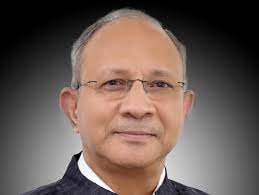
(Pankaj Saran is a former Ambassador of India to Russia and a former High Commissioner (Ambassador) to Bangladesh. A veteran diplomat, he has served in key positions in the Prime Minister’s Office and served as the Deputy National Security Adviser for Strategic Affairs. He is presently the Convenor of NatStrat India, a research organization focused on strategic and security issues.)
Author Profile
- India Writes Network (www.indiawrites.org) is an emerging think tank and a media-publishing company focused on international affairs & the India Story. Centre for Global India Insights is the research arm of India Writes Network. To subscribe to India and the World, write to editor@indiawrites.org. A venture of TGII Media Private Limited, a leading media, publishing and consultancy company, IWN has carved a niche for balanced and exhaustive reporting and analysis of international affairs. Eminent personalities, politicians, diplomats, authors, strategy gurus and news-makers have contributed to India Writes Network, as also “India and the World,” a magazine focused on global affairs.
Latest entries
 DiplomacyJanuary 5, 2026India walks diplomatic tightrope over US operation in Venezuela
DiplomacyJanuary 5, 2026India walks diplomatic tightrope over US operation in Venezuela India and the WorldNovember 26, 2025G20@20: Africa’s Moment – The Once and Future World Order
India and the WorldNovember 26, 2025G20@20: Africa’s Moment – The Once and Future World Order DiplomacyOctober 4, 2025UNGA Resolution 2758 Must Not Be Distorted, One-China Principle Brooks No Challenge
DiplomacyOctober 4, 2025UNGA Resolution 2758 Must Not Be Distorted, One-China Principle Brooks No Challenge India and the WorldJuly 26, 2025MPs, diplomats laud Operation Sindoor, call for national unity to combat Pakistan-sponsored terror
India and the WorldJuly 26, 2025MPs, diplomats laud Operation Sindoor, call for national unity to combat Pakistan-sponsored terror





